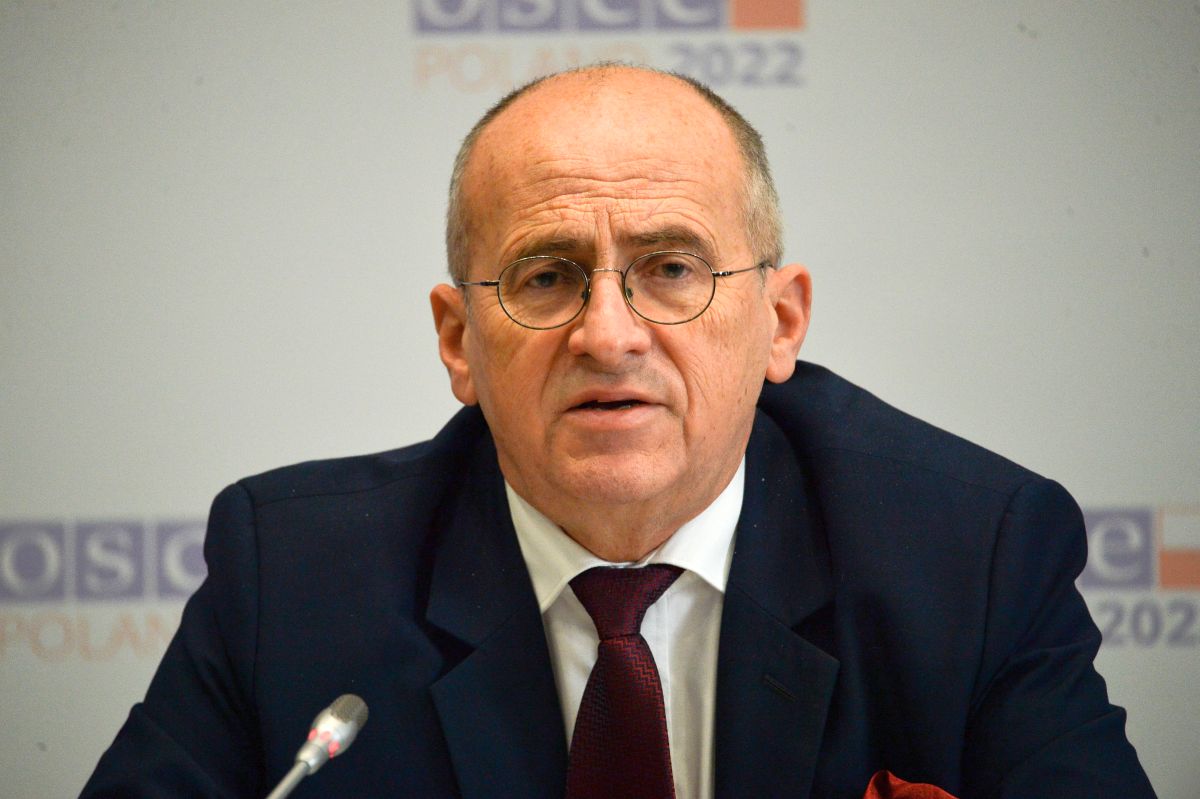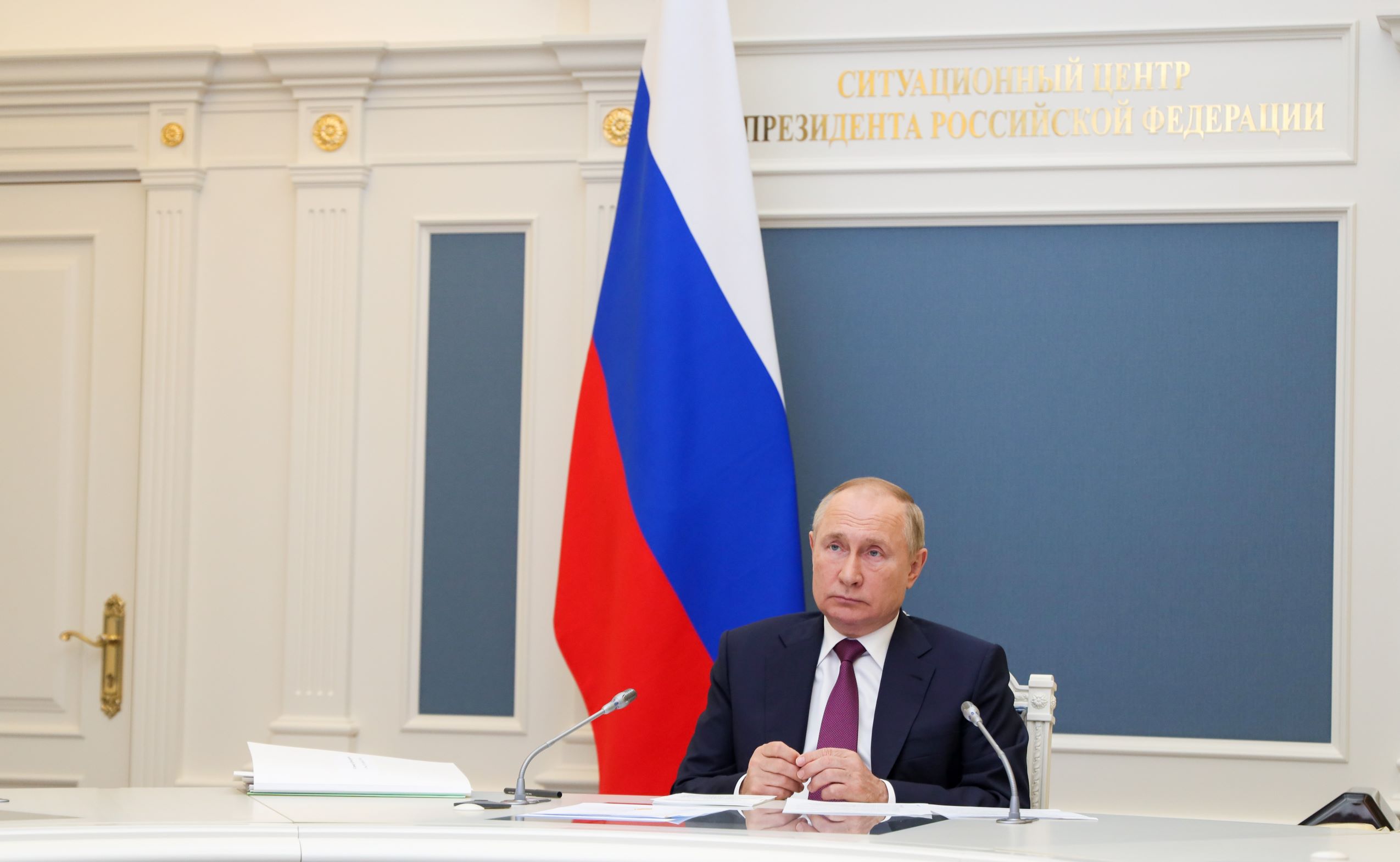Poland Takes Chairmanship of the OSCE
At the 13 January session of the OSCE Permanent Council, Polish Minister of Foreign Affairs Zbigniew Rau presented the priorities of the 2022 Polish Chairmanship, and also addressed current crises. Although the OSCE’s activity covers a wide range of issues, including human rights and economic cooperation, the most important challenge in 2022 will be using the organisation to de-escalate crises in Eastern Europe and to facilitate dialogue on European security. This requires the political will and commitment of all participating states, particularly Russia.
 Fot. Gazeta Polska/ Aleksiej Witwicki/ FORUM
Fot. Gazeta Polska/ Aleksiej Witwicki/ FORUM
What is the OSCE?
The Organisation for Security and Co-operation in Europe was established in 1995, but it dates back to the process of Cold War détente, which included the signing of the CSCE Final Act in 1975 and the Paris Charter of a New Europe in 1990. As part of this gradual process, what came to be known as the comprehensive security concept of the OSCE emerged, involving commitments and activities in three dimensions: politico-military, economic and environmental, and the human dimension (the observance of human rights and democracy standards). Currently, the OSCE consists of 57 states from Europe and Central Asia, the U.S. and Canada. Within the framework of the OSCE, specialised institutions and field operations have been established, including its largest Special Monitoring Mission (SMM), operating in Ukraine since 2014.
What are the main strengths and weaknesses of the organisation?
The OSCE remains the most inclusive regional organisation in the Euro-Atlantic and Eurasian space, with a broad mandate and a set of jointly adopted political commitments and principles. The organisation has developed a range of instruments for crisis and conflict management. It has valuable field experience, especially in Eastern Europe and the Balkans.
In the 21st century, the political importance of the OSCE has gradually decreased, however, with the growing role of the European Union, NATO, and other organisations established by Russia. The principle of consensus that underpins the functioning of the OSCE and the political nature of the OSCE commitments have made it possible for single states to paralyse its work in specific areas or for authoritarian states to backtrack on some of their prior obligations (especially in the human dimension). The diplomatic activity of the organisation and its field operations may have contributed to stabilising major conflicts and crises in the OSCE area of operation, but it has not led to their resolution.
What do the OSCE chair’s responsibilities include?
Poland takes over as chair of the OSCE for the second time in history. In 2021, the chair was held by Sweden, and in 2023 it will be passed to North Macedonia. Foreign Minister Rau will act as the OSCE Chairman-in-Office. The scope of the chair’s freedom of action is limited by the principle of consensus within the organisation and the need to cooperate with the OSCE Secretary-General and heads of OSCE institutions. However, each chairmanship defines the main priorities on which it wants to focus its activities in a given year, including by organising and shaping the agenda of major meetings. The chair also conducts diplomatic activities representing the organisation, including in crises. The culmination of the chairmanship is the OSCE Ministerial Council in December, which will be held this year in Łódź.
What are the main priorities of the Polish chairmanship?
The immediate challenge for Poland as the chair is the deterioration of the security situation around Ukraine, Russia’s demands towards the U.S. and NATO, as well as the situation in Kazakhstan and tensions on the Armenian-Azerbaijani border. The Polish chairmanship will focus on identifying areas for dialogue and using the OSCE instruments for de-escalation, but it will also emphasise the need to respect international law and OSCE principles in their entirety as a framework for conflict resolution.
The Polish chairmanship will also strive to unify and mobilise participating states around challenges common to the entire OSCE area. These include overcoming the COVID-19 pandemic, economic reconstruction, climate and energy transformation (using the OSCE as a forum for sharing experience and best practices), as well as better protection of most vulnerable groups affected by conflicts. Poland will want to increase the effectiveness of the OSCE human dimension. The chairmanship also will continue the efforts of its predecessors to improve the functioning of the organisation, including the budget adoption process.
Can OSCE diplomacy contribute to overcoming the current crisis in relations with Russia?
The meeting of the Permanent Council took place immediately after the U.S.-Russia talks in Geneva and after the meeting of the NATO-Russia Council. However, Russia’s proposals were not discussed in detail within the OSCE. However, both Minister Rau and OSCE Secretary-General Helga Schmid declared their willingness to intensify the dialogue on European security.
The prospects for making progress in the OSCE will depend primarily on Russia’s political calculus. If it decides to pursue the diplomatic path, it would be possible, for example, to start discussions within the OSCE on a review of the principles of European security, including understanding the principle of indivisibility of security, or on conventional arms control. With Russia’s commitment, modernisation of the OSCE Vienna Document and expansion of its confidence-building, incident-prevention, and risk-reduction measures would also be feasible. If, on the other hand, Russia decides on confrontation, it would block or obstruct all proposals for dialogue within the OSCE, and perhaps also attempt to end the SMM in Ukraine by not renewing its mandate.




_sm.jpg)